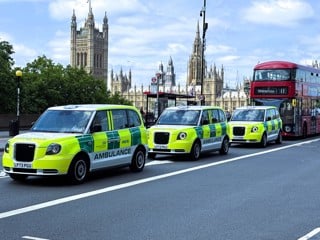Each week, around 100 at-work drivers are killed or seriously injured on the UK’s roads making it one of the most dangerous things someone can do at work.
Apart from the human cost involved, companies are also left to pick up the resulting bill which is estimated at £2.7 billion per year.
However, while the fleet industry is embracing driver training programmes which include employee risk assessments, it can it go one step further.
TRL, which was established as the Transport Research Laboratory in 1933 and now has among its 450-strong workforce world experts in their respective fields, is offering a new accident investigation course.
TRL’s research and consultancy work is extensive in both the public and private sectors, and it was while working with a client that it first saw the value in launching the course.
A utility company contacted TRL to look into what the reasons were behind the road traffic accidents it was experiencing. It was when assisting the organisation during an accident investigation that they both realised there was a gap in fleet operator’s knowledge.
Accident investigation has always been seen as the domain of police and accident investigators, such as those employed by TRL. But why not give the fleet industry the skills to investigate these incidents for itself?
“Whilst I don’t think that the investigation of vehicle incidents is an area of fleet management which has been deliberately ignored in the past,” explains Iwan Parry, head of investigations at TRL. “It is an area where managers have tended to undertake investigations as best they can without specific training or to wait for the outcome of police enquiries.”
It’s an approach that has perhaps endured because of a lack of training options available to fleets, according to Parry, and one which through the launch of TRL’s accident investigation course this month that he hopes to change.
“The course is aimed at health and safety, fleet, professional standards and operations managers, and others who deal with the questions that arise from on or off-site incidents involving company vehicles and staff,” adds Parry.
“It’s appropriate for any business which seeks to learn preventative lessons and to identify effective actions following road traffic incidents involving its vehicles.”
























Login to comment
Comments
No comments have been made yet.